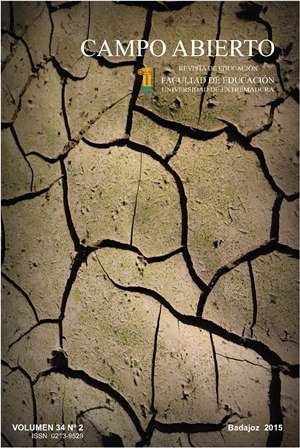ANÁLISIS TEXTUAL DISCURSIVO EN PROCESO: INVESTIGANDO LA PERCEPCIÓN SOBRE EL APRENDIZAJE DE PROFESORES Y FUTUROS GRADUADOS EN QUÍMICA. [Discursive Textual Analysis in process: investigating the perception of the learning of teachers and future graduate in
Palabras clave:
formación del profesorado, análisis textual discursivo, el aprendizaje de la Química, teacher training, Discursive Textual Analysis, Chemistry learning,Resumen
Este artículo aborda el uso de Análisis Textual Discursivo (ATD) en los procesos de formación del profesorado. Describe las actividades en un curso desarrollado durante un Congreso de Educación Química, en el que profesores y estudiantes universitarios analizaron frases escritas por ellos, que expresan situaciones en las que perciben que el estudiante está aprendiendo química. El artículo presenta consideraciones teóricas sobre el ATD y sobre el análisis realizado. Los resultados muestran que los participantes se dan cuenta de que los estudiantes están aprendiendo química cuando: emplean los nuevos conocimientos en las discusiones; se relacionan los conocimientos con el contexto; expresan el conocimiento en lenguaje químico apropiado; explican el contenido a otros colegas; resuelven situaciones y responden adecuadamente a las preguntas; y muestran interés y satisfacción en aprender. Estos hallazgos son importantes para reflexionar sobre la enseñanza, el aprendizaje, la evaluación y la formación del profesorado.
Abstract
This paper discusses the use of Discursive Textual Discursive Analysis (DTA) in teacher training processes. The text describes the activities in a course developed during a Congress of Chemistry Education, in which the teachers and Chemistry undergraduates analyzed sentences written by them, expressing situations where they perceive that the student is learning Chemistry. The paper presents theoretical considerations about DTA and about the analysis realized. The results show that the participants realize that the students are learning Chemistry when: they use the new knowledge in discussions; they relate the knowledge to the context; they express the knowledge in appropriate chemical language; they explain the contents to other colleagues; they resolve situations and answer appropriately to questions; and they show interest and enjoyment in learning. These findings were important to reflect about the teaching, the learning, the assessment and the teacher training.


